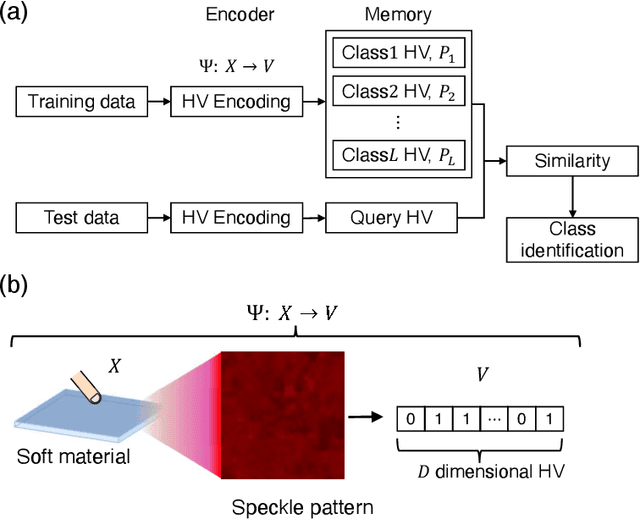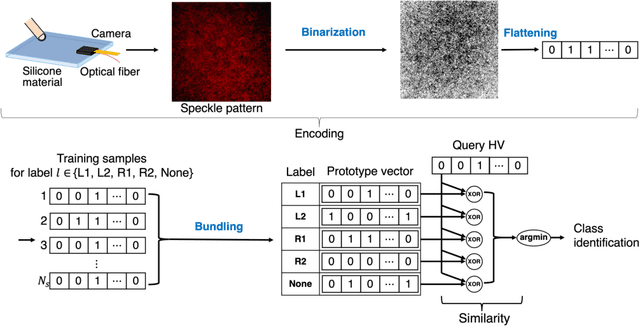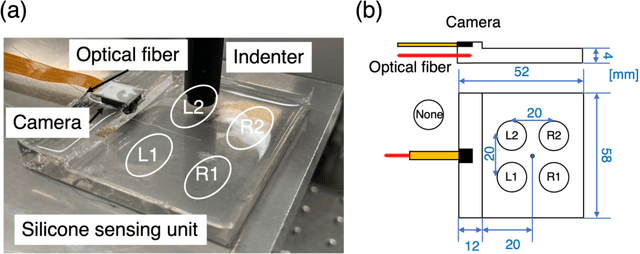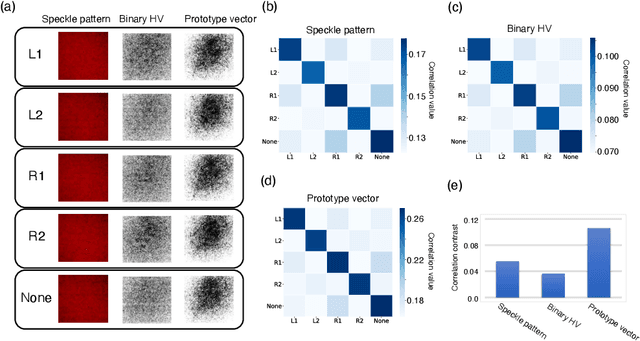Optical hyperdimensional soft sensing: Speckle-based touch interface and tactile sensor
Paper and Code
Jan 06, 2024



Hyperdimensional computing (HDC) is an emerging computing paradigm that exploits the distributed representation of input data in a hyperdimensional space, the dimensions of which are typically between 1,000--10,000. The hyperdimensional distributed representation enables energy-efficient, low-latency, and noise-robust computations with low-precision and basic arithmetic operations. In this study, we propose optical hyperdimensional distributed representations based on laser speckles for adaptive, efficient, and low-latency optical sensor processing. In the proposed approach, sensory information is optically mapped into a hyperdimensional space with >250,000 dimensions, enabling HDC-based cognitive processing. We use this approach for the processing of a soft-touch interface and a tactile sensor and demonstrate to achieve high accuracy of touch or tactile recognition while significantly reducing training data amount and computational burdens, compared with previous machine-learning-based sensing approaches. Furthermore, we show that this approach enables adaptive recalibration to keep high accuracy even under different conditions.
 Add to Chrome
Add to Chrome Add to Firefox
Add to Firefox Add to Edge
Add to Edge